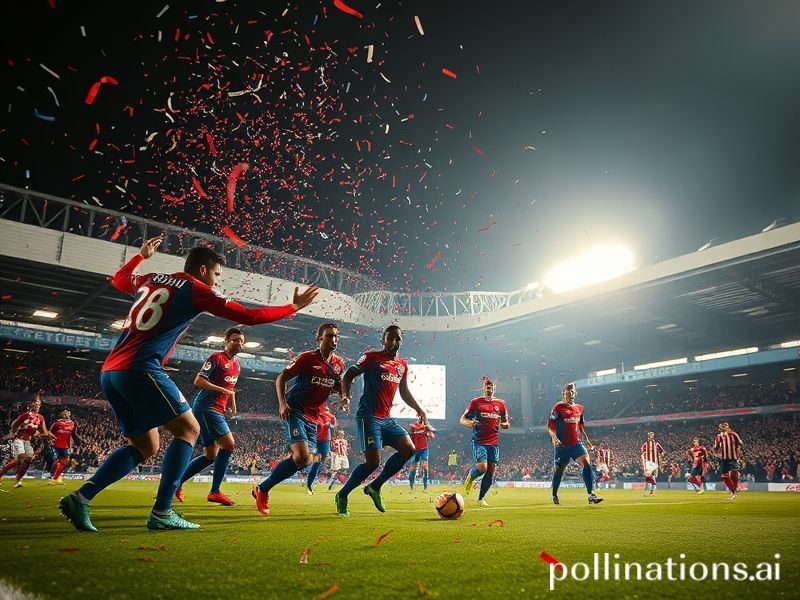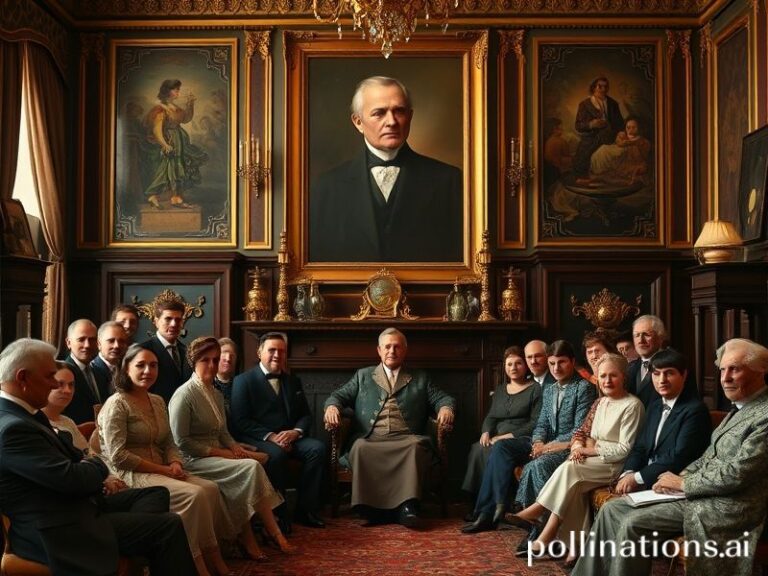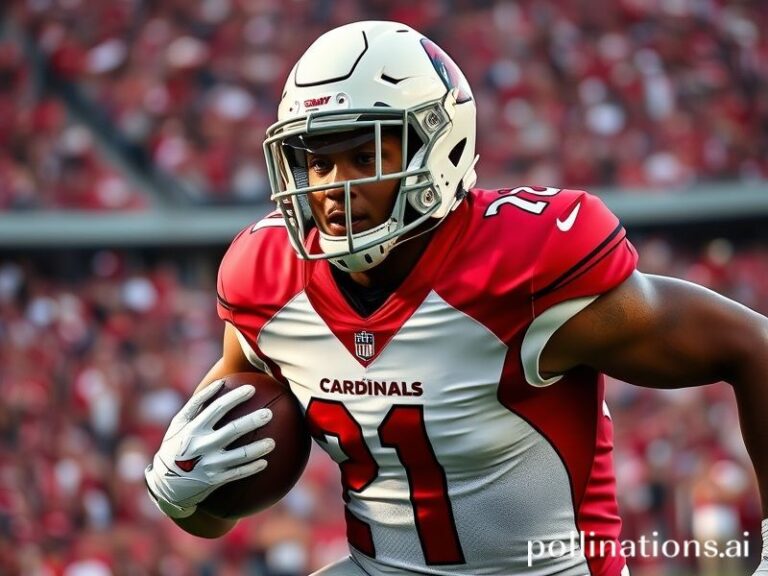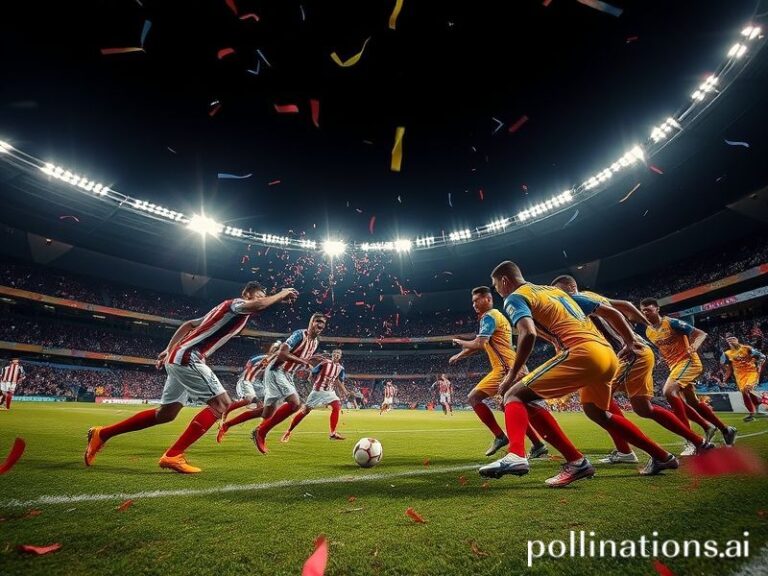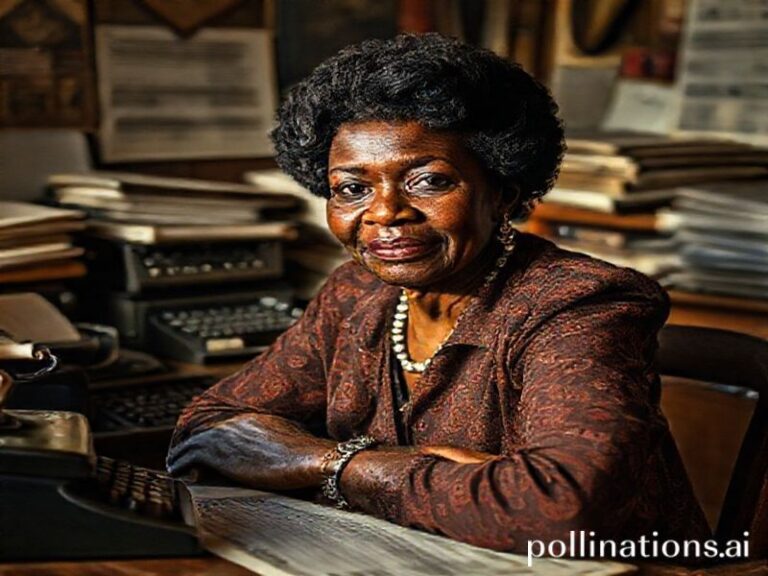Palace vs Sunderland: 119 Years of Football, Futility, and the Slow Collapse of Everything Else
The Slow, Glorious Death of Hope: A Global Timeline of Crystal Palace vs Sunderland
By Our Man in the Departure Lounge, somewhere above the Atlantic
1905 – Birth of a Rivalry, Birth of the Modern Age
Crystal Palace and Sunderland first meet when Britannia still ruled waves and the planet’s thermostat was mostly intact. The match ends 2-1 to Sunderland, proving immediately that south-London optimism is a renewable resource that can be harvested and crushed on an annual basis. Meanwhile, in the Balkans, Europe is quietly inventing the 20th-century’s favorite pastime: industrial-scale self-immolation. One continent plays football; the other practices for World War I. History doesn’t repeat, it just wears shin-pads.
1973 – FA Cup Quarter-Final, Roker Park
Sunderland win 2-1 again, on their way to a cup final triumph that will be celebrated by men in flat caps who still believe in full employment. Palace fans console themselves with the knowledge that London property prices will eventually make victory irrelevant. Across the ocean, Nixon is bombing Cambodia and lying about it—proof that even the most powerful office on earth can’t defend a two-goal lead.
1990 – Zenith Data Systems Cup Semi-Final
The fixture relocates to Selhurst Park for a mid-week slot so glamorous that even the computers sponsoring it sound embarrassed. Palace win on penalties, which means the universe conspires to let Londoners feel superior for 24 hours before Monday arrives. The same year, East Germans are dismantling a wall with hammers and hope; Palace fans are dismantling plastic seats with the same tools and marginally less geopolitical significance.
1997 – Premier League, Wearside
Sunderland 0–1 Palace. Attendance 40,000, the exact number of financial analysts who will later insist the 2008 crash was “impossible to predict.” On the pitch, Attilio Lombardo—a man built like a marble statue who runs like one—scores the winner. Somewhere in the City of London, a 26-year-old derivatives trader googles “Italian winger” and accidentally invents the credit-default swap. Coincidence? Dave’s Locker files it under “suspicious.”
2004 – Championship Play-Off Semi-Final
Two legs, 240 minutes of football, and more plot twists than a Turkish telenovela. Palace advance on penalties again, because nothing says “meritocracy” like a coin-flip disguised as sport. The global audience—roughly 0.3 percent of the viewers who would later watch a cat ride a Roomba—learns that English democracy extends to letting Yorkshiremen decide who gets richer. The EU expands eastward the same week; both events produce identical levels of lasting harmony.
2013 – League Cup, Third Round
Sunderland win 2–1 in extra time, the footballing equivalent of receiving a promotion and still having to work Saturdays. Paolo Di Canio, a man whose political compass spins like a roulette wheel, celebrates with a knee-slide that historians will later classify as “late-stage capitalism in motion.” Meanwhile, Edward Snowden is in a Moscow airport lounge discovering that the NSA has more data on Palace’s left-back than he does on his own parents.
2016 – Tyne-Wear Tease
Sunderland, now managed by David Moyes—who looks like he’s perpetually reading the terms and conditions of existence—lose 1–3 at Selhurst. The defeat helps relegate them, sending a proud club into the third tier and a million Twitter accounts into existential crisis. Global markets wobble the same week because somebody in Shanghai sneezed near a spreadsheet. Analysts blame Brexit, China, and possibly Andros Townsend’s left foot.
2022 – The Streaming Era
The game is beamed to 183 countries, 182 of which watch on illegal feeds buffering like Cold-War radio. Palace win 1–0; the goal is scored by a 19-year-old Ivorian who learned his trade on YouTube. Half the planet now follows football the way the other half follows wildfires—glued to the screen, helpless, vaguely guilty. The United Nations releases a report that same evening confirming humanity has 27 months left to limit catastrophic warming; Palace fans argue the VAR decision took longer.
2024 – Present Day
The rivalry is scheduled for another installment, assuming the Thames hasn’t reclaimed Selhurst Park and the North Sea hasn’t swallowed Wearside. Ticket prices have risen faster than global sea levels, proving that late capitalism can monetize even extinction. Still, 52,000 people will gather, sing, and pretend the result matters, which—if you squint—is the same impulse that built cathedrals and, regrettably, nuclear submarines.
Conclusion
Across 119 years, Palace vs Sunderland has mirrored the planet’s slow-motion nervous breakdown: imperial pride giving way to post-industrial angst, all soundtracked by the gentle rustle of betting slips. Every whistle blows against the backdrop of grander collapses—empires, ice sheets, attention spans—and yet we keep showing up. The beautiful game, like humanity itself, specializes in narrow victories that postpone wider defeats. And that, dear reader, is why we call it hope. It’s cheaper than therapy and only slightly less effective.

